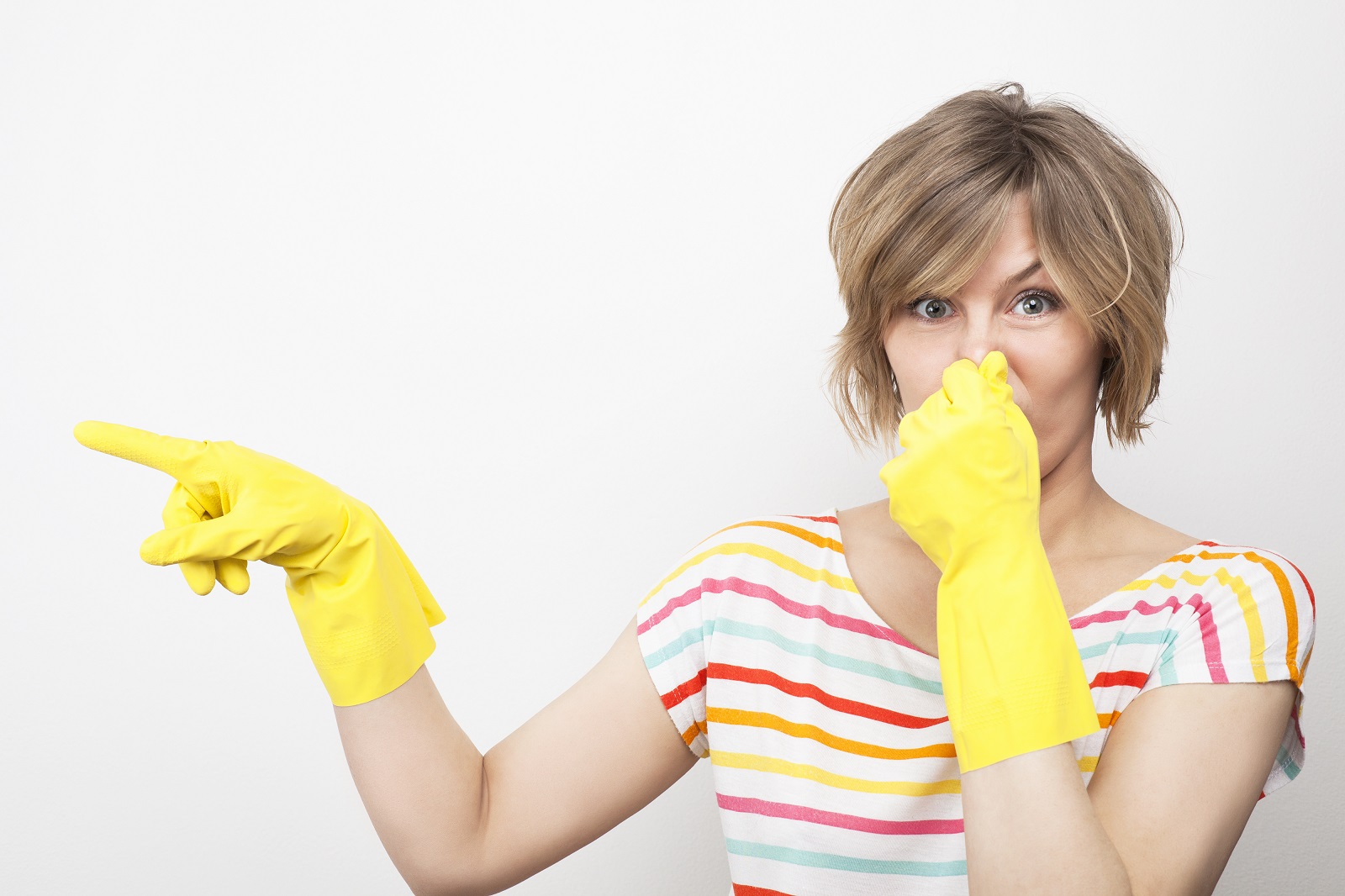Biohazard cleanup: When it comes to maintaining a safe and healthy home environment, cleanliness is paramount. However, not all cleaning tasks are created equal. While wiping down countertops, vacuuming carpets, and mopping floors are routine chores, there’s a category of cleaning that requires far more attention and expertise: biohazard cleanup.
Biohazards, such as blood, bodily fluids, mold, sewage and chemical spills, pose significant risks to health and safety if not handled properly. Unfortunately, many homeowners in Indianapolis underestimate the dangers of unattended biohazard cleanup, often attempting to tackle these situations themselves.

This topic will explore the hidden dangers of unattended biohazard cleanup for residences in Indianapolis and why professional intervention is often necessary. For immediate assistance with Bio-hazard Clean up, contact PuroClean Disaster Restoration, Call (+1) 317-467-4436 or (+1) 260-263-9788 for Fort Wayne location
What are Biohazards?
Biohazards, short for biological hazards, are substances that threaten human health or the environment. They can be found in various forms, including:
- Blood and bodily fluids: From accidents, injuries, or crime scenes.
- Sewage backups: Contaminated water containing bacteria, viruses, and parasites.
- Mold growth: especially toxic black mold, which can release harmful spores.
- Animal waste and remains: Including feaces, urine, and decaying carcasses.
- Chemical Spills: Hazardous materials like pesticides, solvents, or industrial cleaners.
These substances are not just slightly, they can harbor dangerous pathogens, toxins, and allergens that can cause serious health issues if not properly addressed.
The Hidden Dangers of Unattended Biohazard Cleanup
- Exposure to Pathogens and Infectious Diseases: One of the most significant risks of unattended biohazard cleanup is exposure to harmful pathogens. Blood and bodily fluids can carry bloodborne pathogens like HIV, hepatitis B, and hepatitis C. Sewage backups are breeding grounds for bacteria such as E.coli and salmonella, as well as viruses and parasites. Mold spores can cause respiratory issues and allergic reactions, especially in individuals with compromised immune systems. Without proper protective gear and cleaning protocols, homeowners risk contracting these illnesses.
- Inadequate Cleaning and Sanitization: Biohazard cleanup requires more than just wiping away visible contaminants. Proper sanitation involves using specialized equipment, cleaning agents, and techniques to ensure that all traces of biohazards are removed. Without professional training, homeowners may fail to eliminate hidden contaminants, leaving behind residues that can continue to pose health risks.
- Chemical Hazards: Improper handling of chemical spills or cleaning agents can lead to dangerous reactions. Mixing incompatible chemicals, for example, can release toxic fumes or cause explosions. Additionally, overexposure to harsh chemicals can result in skin irritation, respiratory problems, or long-term health issues.
- Structural Damage: Biohazards like backups and mold growth can cause significant damage to your home’s structure. Sewage can seep into walls, floors, and furniture, leading to rot and decay. Mold can spread rapidly, weakening building materials and compromising the integrity of your home. Unattended cleanup efforts may fail to address these underlying issues, resulting in costly repairs down the line.
- Emotional Trauma: Biohazard situations often arise from traumatic events, such as accidents, crimes, or deaths. Attempting to clean up these scenes without professional help can exacerbate emotional distress. Professional biohazard cleanup teams are trained to handle these situations with sensitivity and care, allowing homeowners to focus on healing.
- Legal and Regulatory Risks: Improper disposal of biohazardous materials can lead to legal consequences. Many jurisdictions have strict regulations governing the handling, transportation, and disposal of biohazards. Failure to comply with these regulations can result in fines or other penalties.

Why DIY Biohazard Cleanup is a Bad Idea
While it may be tempting to save money by handling biohazard cleanup yourself, the risks far outweigh the benefits. Here’s why DIY cleanup is not recommended:
- Lack of Proper Equipment: Professional cleanup teams use specialized equipment, such as HEPA vacuums, ozone generators, and industrial-grade disinfectants, to ensure thorough cleaning and sanitization.
- Insufficient Training: Biohazard cleanup requires knowledge of safety protocols, proper disposal methods, and infection control. Without this training, you riskexposing yourself and others to harm.
- Incomplete Cleanup: DIY efforts often fail to address hidden contaminants, leading to lingering health risks and potential reinfestation.
- Emotional Burden: Cleaning up after a traumatic event can be overwhelming and emotionally taxing. Professionals can handle the task with compassion and efficiency.
The Importance of Professional Biohazard Cleanup
Professional biohazard cleanup services are equipped to handle the unique challenges posed by biohazard situations. Here’s what they bring to the table:
- Expertise and Training: Certified biohazard cleanup technicians undergo rigorous training to handle hazardous materials safely and effectively. They understand the science behind contamination and know how to eliminate it completely.
- Advanced Equipment and Techniques: Professionals use state-of-the-art equipment and EPA-approved cleaning agents to ensure thorough sanitization. They also employ advanced techniques, such as air scrubbing and thermal fogging, to remove airborne contaminants.
- Compliance with Regulations: Professional cleanup teams are well-versed in local, state and federal regulations regarding biohazard disposal. They ensure that all materials are handled and disposed of in compliance with the law.
- Compassionate service: Biohazard cleanup professionals understand the emotional toll of these situations. They work discreetly and respectfully, providing support during difficult times.
- Peace of Mind: Hiring professionals gives you the assurance that your home is safe, clean and free from health hazards. You can focus on recovery and rebuilding without worrying about lingering risks.
When to Call a Professional
It’s essential to recognize when a situation requires professional intervention. Here are some scenerios where you should call a biohazard cleanup company:
- Crime scenes or traumatic incidents: Thesesituations often involve blood and bodily fluids that require specialized cleanup.
- Sewage backups: Contaminated water can spread quickly and cause extensive damage.
- Mold infestations: Especially if the affected area is larger than 10 square feet or involves toxic black mold.
- Unattended deaths: Decomposition can release harmful bacteria and odors that require professional remediation.
- Chemical spills: Hazardous materials should only be handled by trained professionals.
Preventing Biohazard Situations in Your Home
While some biohazard situations are unaviodable, there are steps you can take to minimize the risks:
- Regular Maintenance: Inspect your home for leaks, cracks and other issues that could lead to mold growth or sewage backups.
- Proper Disposal: Dispose of hazardous materials, such as chemicals and medical waste, according to local regulations.
- Quick Action: Address spills, leaks and other issues immediately to prevent them from escalating into biohazard situations.
- Education: Learn torecognize potential biohazards and understand the risks they pose.

Conclusion
Unattended biohazard cleanup in your home is not just a cleaning task, it’s a matter of health and safety. The hidden dangers of improper cleanup, from exposure to pathogens to structural damage, underscore the importance of leaving these situations to the professionals. By recognizing the risks and seeking expert help when needed, you can protect your home, your family and yourself from the potentially devastating consequences of biohazard contamination. Remember, when it comes to biohazards, it’s always better to be safe than sorry.

 PuroClean Disaster Restoration
PuroClean Disaster Restoration